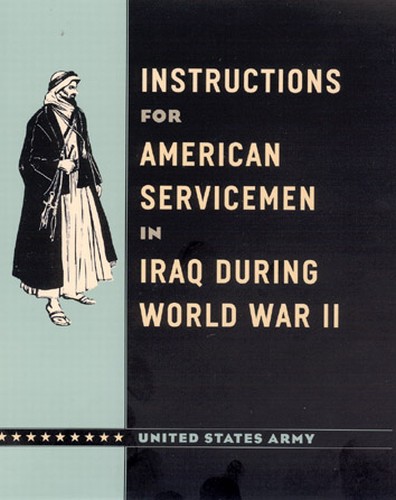Learning from the past

Bloomberg.com is running an interesting review of a selection of the many recently published books on the war in Iraq. In the review, Charles Taylor notes the “unexpected treasure” that is the U. S. Army’s Instructions for American Servicemen in Iraq during World War II—a small book originally published in 1942 designed to help American soldiers adapt to Iraqi culture, but that perhaps has more relevance today than it did over sixty years ago. Taylor writes:
This small guide for U.S. soldiers stationed in Iraq during the Second World War—containing a map of the country, a glossary of useful Arabic phrases and instructions on what to expect and how to act—is the unexpected treasure of the lot. Brief, sensible, written in the kind of clear English that used to be common in American life, the book speaks of a time when thought was given to preparing soldiers for what they would face culturally as well as militarily, and when the importance of the mission was not assumed to grant soldiers the right to swagger like conquerors.
The new foreword by Lieutenant Colonel John A. Nagl sounds both appreciative and rueful, written in the voice of a man who wonders how we ever became embroiled in such a foul-up.